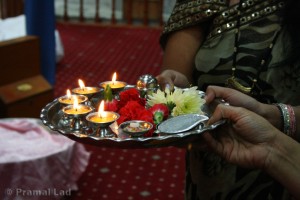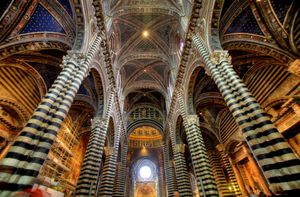I want to start by admitting something: this blog terrifies me. Blogging in general terrifies me. I am not much of a writer, and putting my thoughts down onto paper (generally putting my thoughts into words) is something I am very actively working on because I don't like doing it. I have had to blog in the past for a class as well as for a previous job in addition to the one I hold at Marsh, and it drives me up the wall each time. Blogging forces me to process the information I receive in my life in a way that is unnatural for me, and for that reason, blogging is good. Blogging is like exercise, and like exercise, I don't do it enough (or in reference to exercise, I don't do it at all), and the more I do it, the more adept I become at it, making it (a bit) less painful and (a bit) more enjoyable.
That being said, I still don't like it (both blogging and exercise). The experience of writing for me is like that prank where you put a coaster on a glass filled with water, flip it over, place it on a table, and slip the coaster out so that if someone picks the glass up, all the water spills everywhere, effectively making the table impossible to clear. My feelings, reflections, and thoughts about things are the water, and my body is the glass. I am good at personal reflection and discernment, and I like to keep it to myself, which is what the coaster does; it keeps the water within the glass, even when it is tipped over and placed on a table. However, the act of asking me to write out those feelings is like pulling out that coaster, and when I write, I lift the glass off the table and the water pours out everywhere, creating a mess and making me cry.
Writing for me is not a container. For some people, the best way to process outside stimuli is by putting it into words; words are their container. However, my container is my body. Myers-Briggs tells me I am an ENFP, and although I hate labels, I am a textbook ENFP, especially in regards to how I Perceive things, iNtuit them, and discern my Feeling from them. I know something because I feel it in my gut, and I am good at recognizing and processing those gut feelings. But I don't do it intellectually; I process things by acting in the sense that I perform an action: I worship, I perform, I sculpt, I do, because to act is to do, and it is in the doing that I start to understand things. It can be a long, arduous, and frustratingly slow process, but it is what I have spent the last three-and-a-half years honing in my theatre training. I am not necessarily awful at writing. I am actually proud of my individual voice when I write. I like to think that, for people who know me, they read what I write in my distinct dulcet baritone voice. I have blogged in the past, and I have written papers, and each time I do it, I get better at it. But it is still hard, trying, and exhausting. Going back to the cup/water/coaster/table metaphor, I am still ashamed of the mess that I make when I lift up that glass and water pours everywhere.
I don't mind cleaning up that mess, however, because water (for the most part) won't cause permanent damage; water doesn't leave a stain or a stench. Well, with blogging, lets say the liquid in the glass is milk. Blogging is inherently public. I am assuming someone else will read this blog and because this is the internet, the baggage that it carries is immense; people years from now will read this and I will still be held responsible for what is said here. My last blog post, I wrote about a scripture reading I would be preaching on for Marsh's vespers service later that week. I made some inferences and intuitions about the Gospel lesson, and came to a conclusion. That conclusion was one that I didn't necessarily think all the way through to its completion, and in follow-up discussions, realized it didn't really reflect my theology, or any theology with widespread acceptance. There probably won't be any problems with that blog post in the future, so I am not deleting it; I doubt a future employer is going to fire me because of the biblical exegesis I attempted as an undergrad.
But what if I said something really risky? What if I really pushed my boundary and wrote about something where I was really uncomfortable? Because this whole putting-ideas-to-words thing is not my strongest suit, I run the very real risk of writing something that a) doesn't say what I intended it to say, and/or b) ruffles feathers that I didn't intend to ruffle. I don't know exactly where I want to be in five or six years, but wherever I end up, I will be responsible for what I have previously put out into the world. Writing about theology is exceptionally sensitive because it deals with the parts of our lives where we are exceptionally vulnerable, and I am just not comfortable enough with how I translate my thoughts onto paper to commit to putting more complex ideas out into the world. That blog post, and the sermons that I wrote, were just the tip of the iceberg; they were relatively safe, and I tip-toed around a deeper theological reflection because I simply don't think I am capable of standing by what I say.
So much of my process in this internship here at Marsh has been about identifying how I process things theologically and how I express that. Like I said earlier in the container bit, I am a body know-er, and if I want to continue my theological education and go into ministry, I need to learn how to translate that body knowing into other forms. This blog is good for that. In fact, this blog is great for that, because I don't like doing it. If blogging is exercise, then I am going to the gym, fighting through the sweat, blood, and tears so that I can get better at it. And only if I am hard-pressed will I admit that I have gotten a lot better at this style of reflection. In fact, I feel like this is possibly the best I have done in expressing my feelings in a blog post.
So I wrote this post for a number of reasons. I want to ask all of you to not permanently hold me to what I said in the last post, because although it was a creation of my intuition, it is not a whole summation of what I believe about Christ's crucifixion and resurrection (a contrition for the proliferation of the utilization of words ending in -tion). I also wanted to see if I could actually put to words my insecurity in putting ideas to words, because there is a way to avoid spilling the water all over the place when you lift up the glass (you have to slide the glass to the edge of the table and have a pitcher to catch the liquid as you slide the glass off the edge; it leaves a bit of a trail, but cleanup is minimal compared to the alternative). And at the end of the day, learning how to do this blogging thing is building up my arsenal of sponges so that if I make a mess, I will know how to clean it up. And finally, I wrote this blog post so that I could wrap up this metaphor by saying that I will no longer cry over spilt milk.



